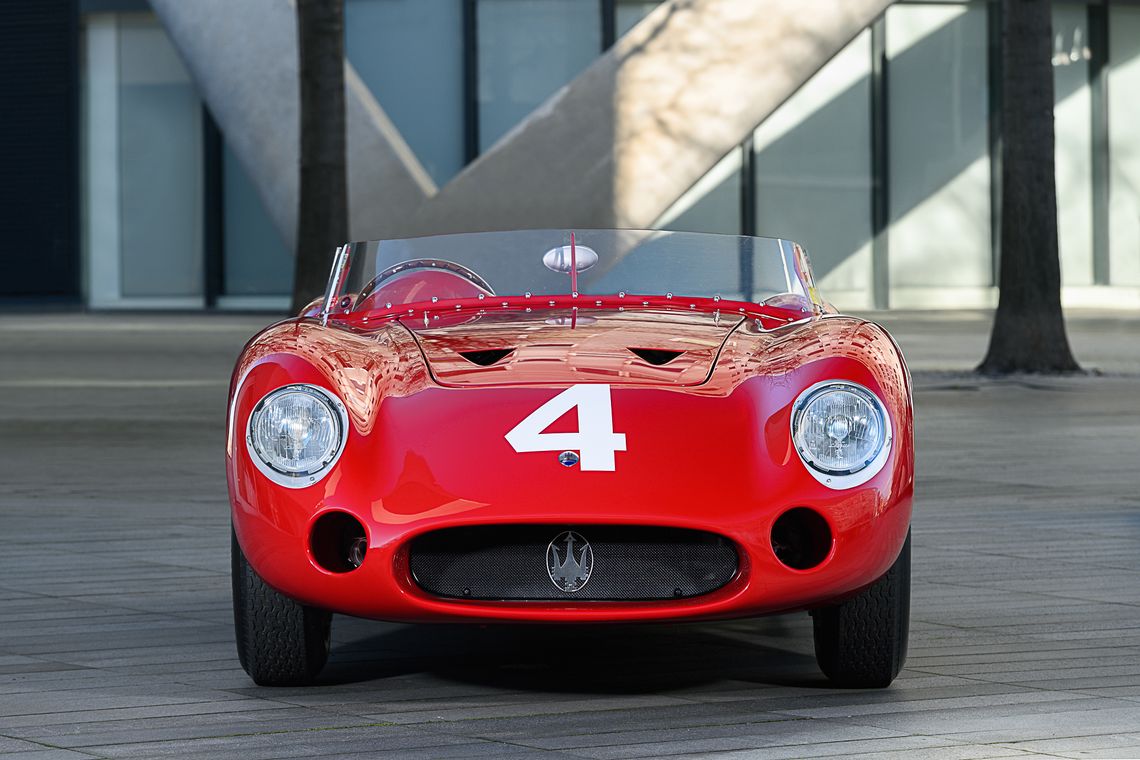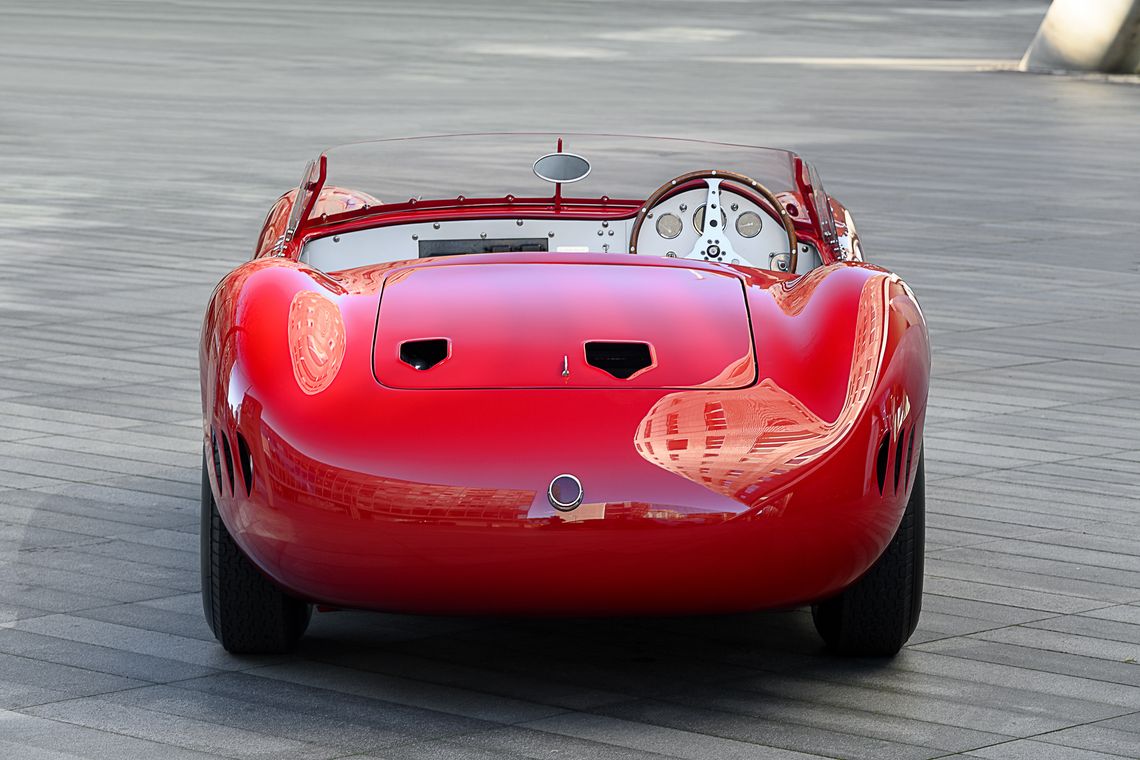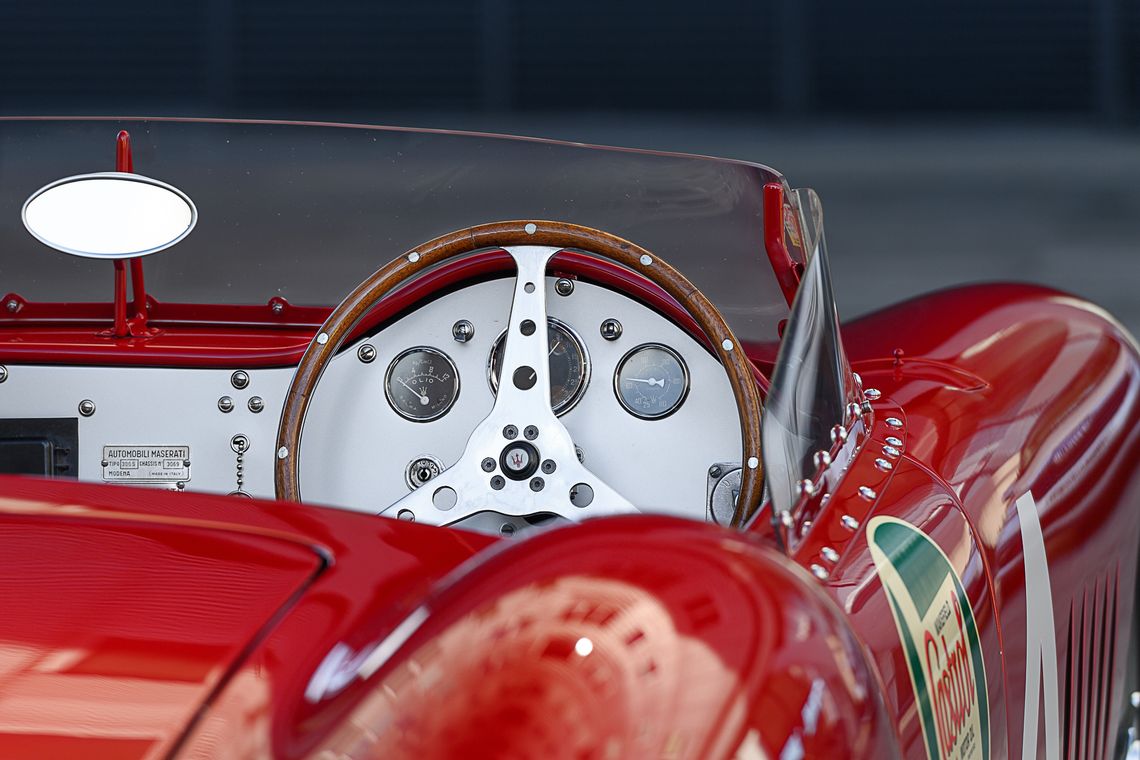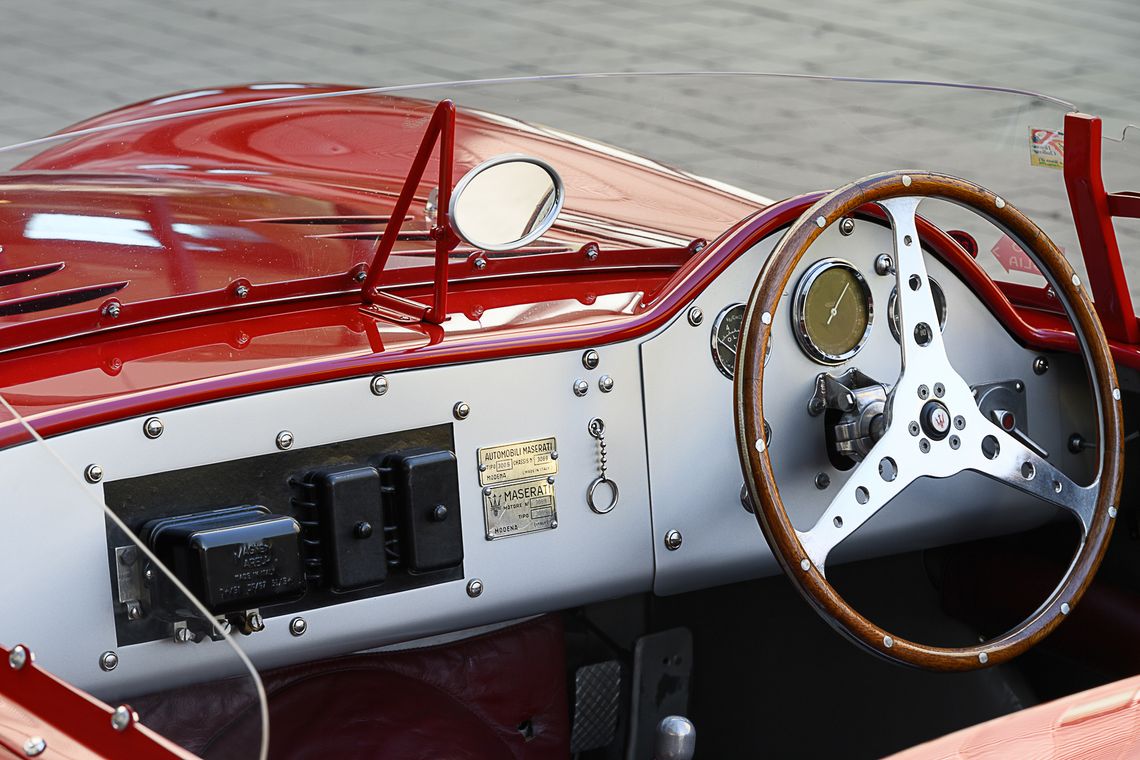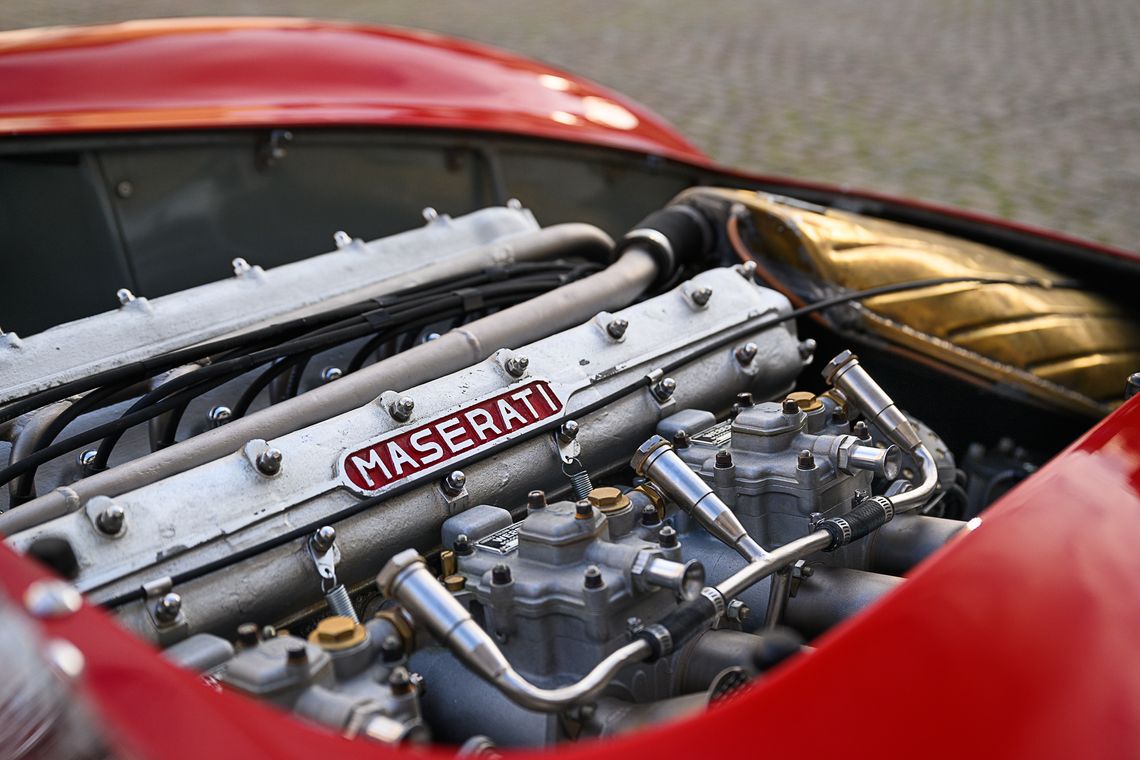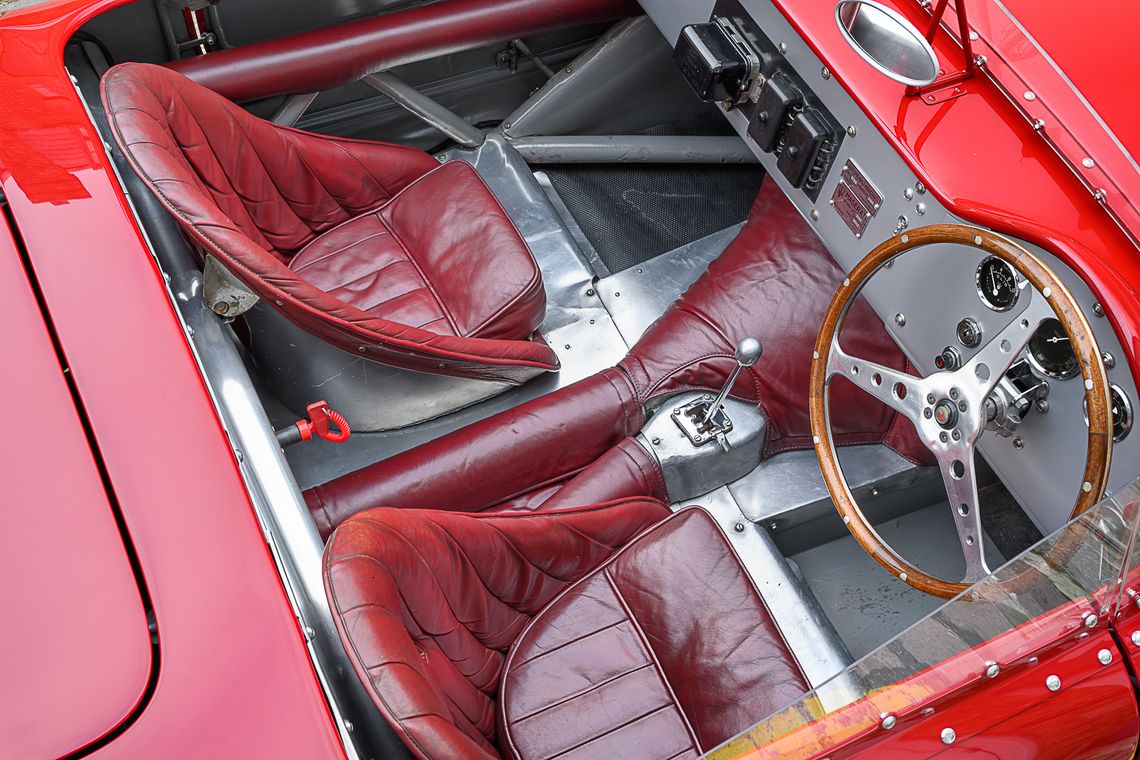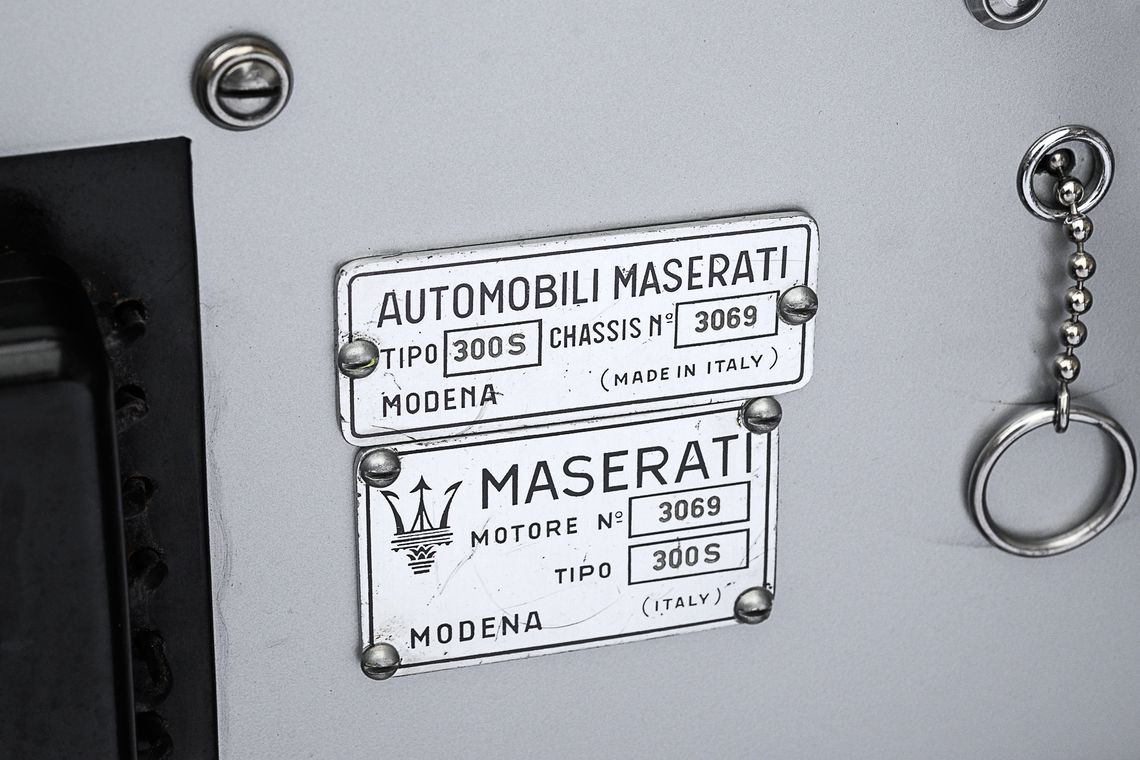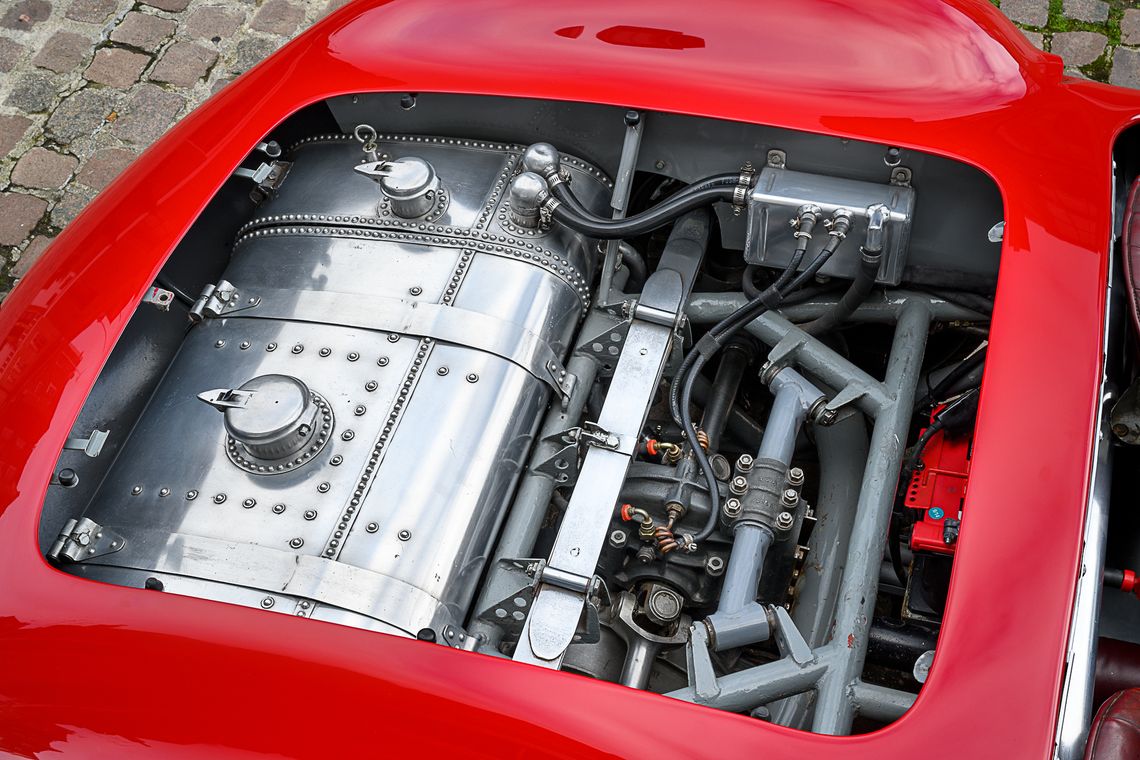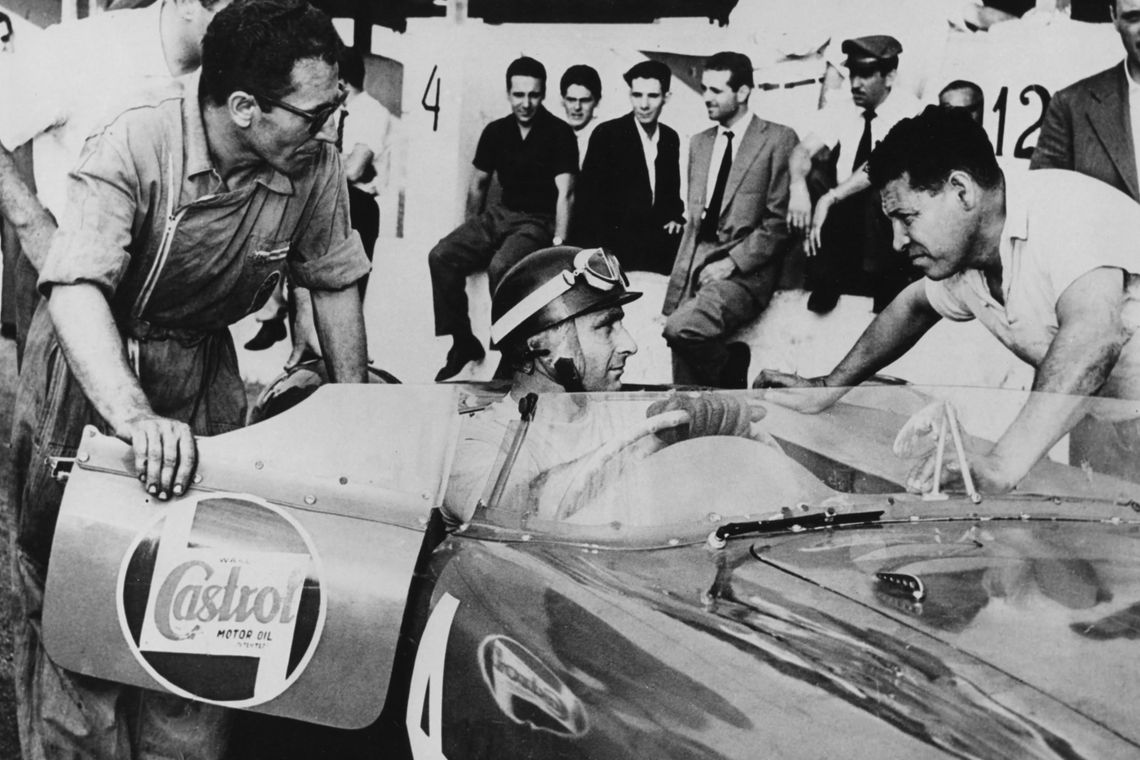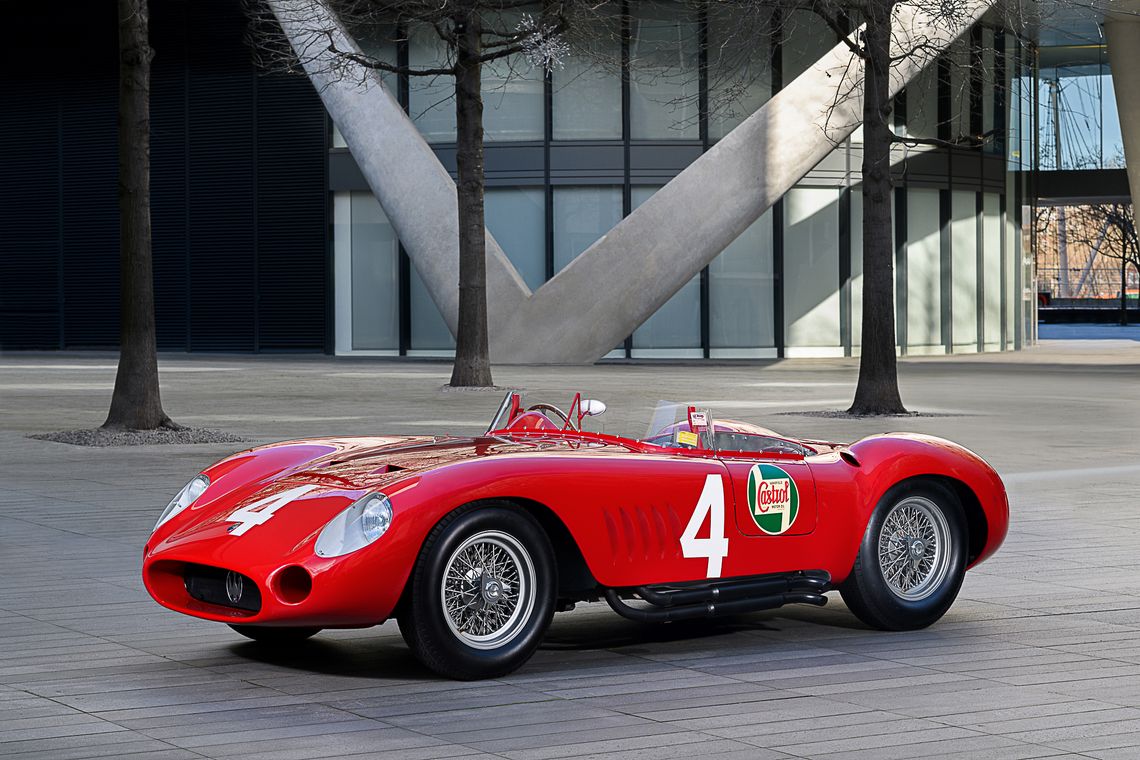
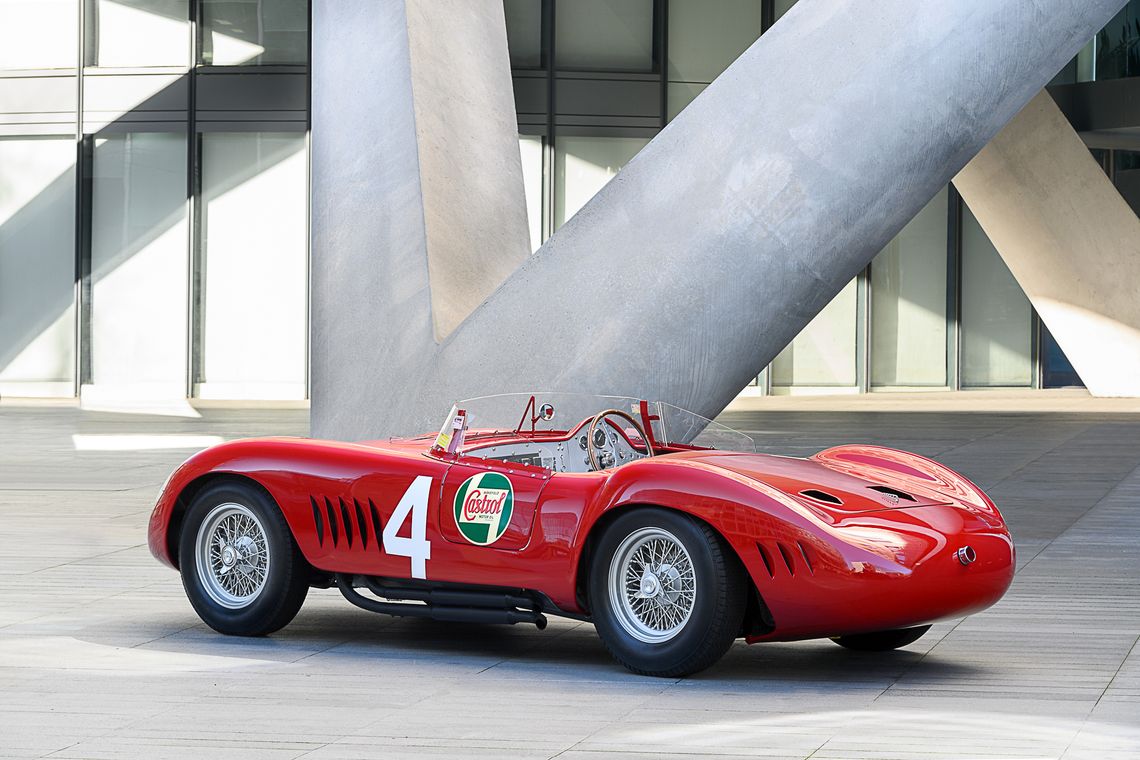
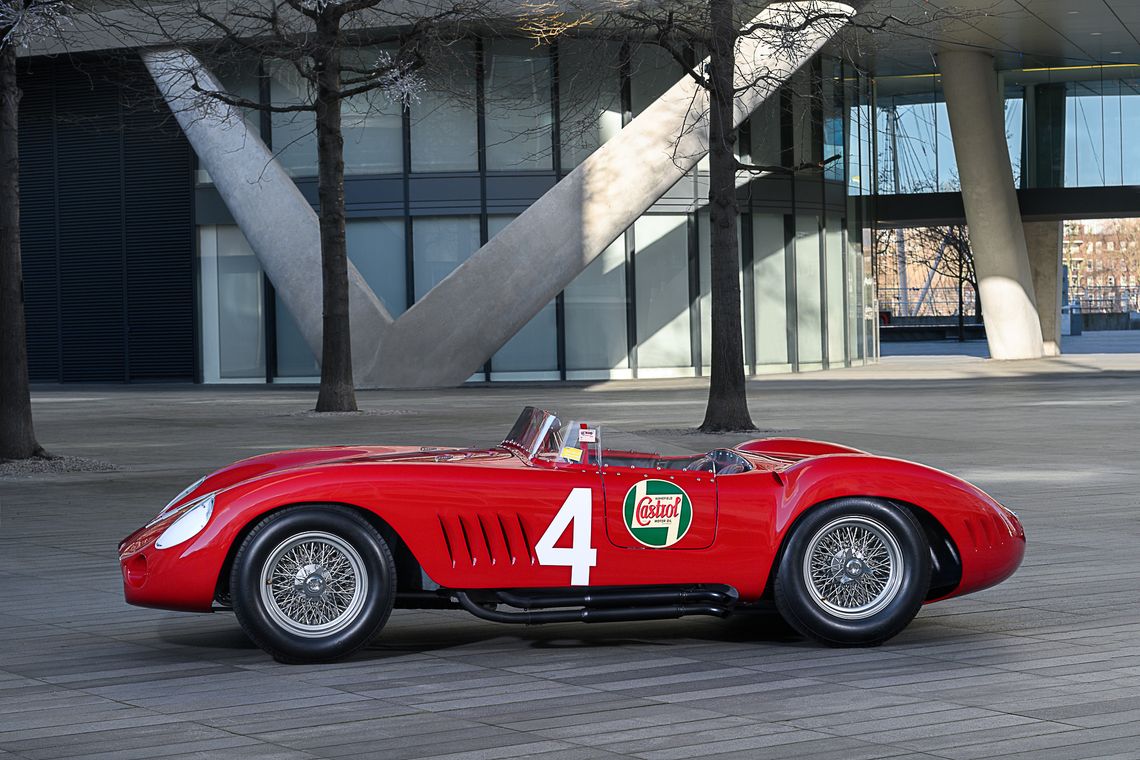




Quite simply “Fangio’s 300S” – piloted by one of the most deeply revered heroes of Formula One to four victories in the year of his fifth and final World Championship, 1957.
3069’s outstanding period history gives her special meaning prized by successive owners. One of just 26 produced, this 300S was first marked sold to Italian Armando Zampiero, but the fates intervened after delivery was not taken. Instead 3069 was entered by Maserati for Fangio in the Grand Prix of Portugal, under the Scuderia Madunina banner.
3069 was then delivered to Fangio’s racing manager Marcello Giambertone and was one of a pair exported to South America for his competition group Organprix. There, in the December of his greatest year, Argentina’s hero conjured three more victories in this 300S, in two races at the Grand Prix Interlagos at São Paolo, then in the Grand Prix of Rio de Janeiro.
The 300S was Maserati’s front-line big-capacity sports-racing car for two seasons of the World Sports Car Championship, and the sports counterpart of the immortal 250F single-seater. Its three-litre twin-cam straight six was substantially the same but longer stroke. It shared 250F running gear, with front wishbones and coil springs, forward-facing de Dion back axle, and rear-mounted transverse gearbox. With coachwork by Fantuzzi, it was utterly beautiful.
Period drivers loved the 300S, the outstanding characteristic being its balance and beautiful handling. In the hands of the right drivers, these qualities could get the 300S around the circuit quicker than many larger-displacement competitors. The 300S was a personal favourite of the late Sir Stirling Moss, who took one to a famous victory in the 1956 1000 km of Nürburgring, with Piero Taruffi, Harry Schell, and Jean Behra.
Described by 300S authority Walter Bäumer as the longest working 300S of all, 3069 competed in South America until 1972, in the hands of a variety of South American businessmen, playboys and adventurers. Rediscovered by car-hunter Colin Crabbe at fortune’s ebb, she was repatriated to the United Kingdom and first restored in the early 1980s, with additional works in later years.
A chain of distinguished owner-drivers followed, including Count Vittorio Zanon de Valgiurata, noted Parisian collector Michel Seydoux, Lord Laidlaw, and the current accomplished racer, who has kept her for over twenty years. In his hands, 3069 has been campaigned with great success, appearing at the Nürburgring and Spa, in the Ferrari/Maserati historic challenge, the Mille Miglia twice, and many more.
